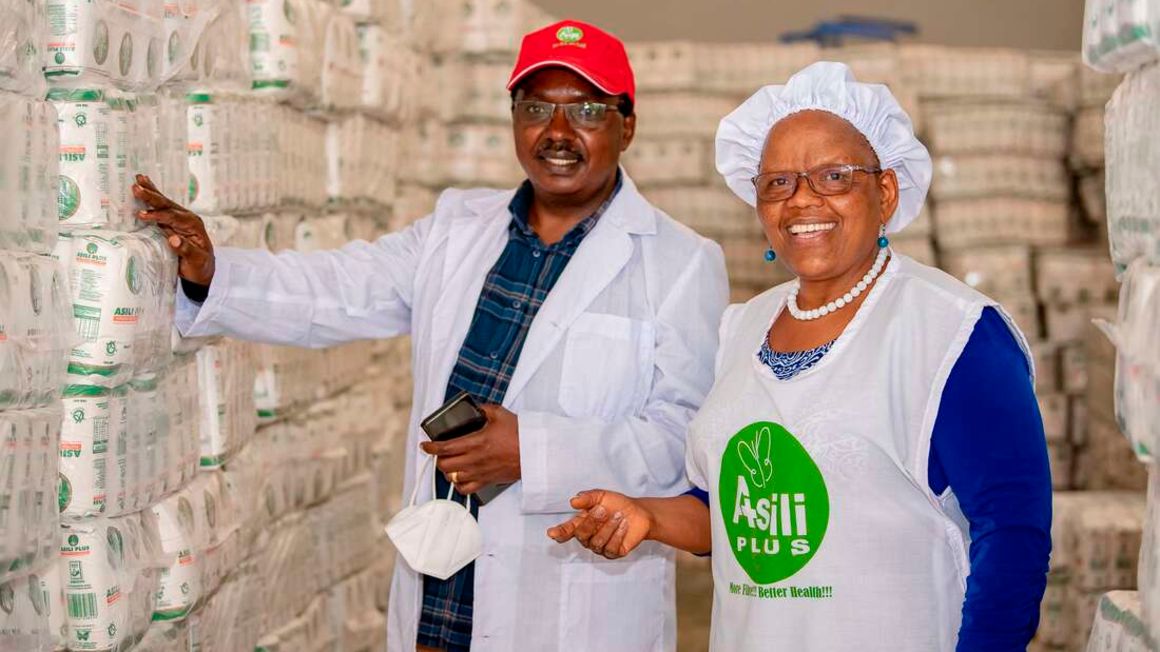Daniel Kinoti and his wife Ruth at their milling factory in Meru. PHOTO | LEOPOLD OBI | NMG A few years ago, when the government tried to impose a 50 per cent levy on sorghum beer, a couple was left stranded with tonnes of grain they didn’t know what to do with. But that would be an eye-opening experience for them to never rely on one market.
Today, Daniel Kinoti and his wife Ruth have turned a business they started as cereal aggregation into a milling factory employing several people besides providing ready market to hundreds of farmers.
Mrs Kinoti, the Shalem Investment CEO, says they have contracted more than 40,000 farmers to supply raw materials.
As a social enterprise, she says, they encourage small-scale farmers to organise themselves into groups while selling to them.
"Our prices per kilo are a shilling higher than what is offered in the market, if a group has 10 tonnes, they earn Sh10,000 extra," explains the Asili plus flour proprietor.
Their factory which is located in Meru County processes maize, soya, finger millet and sorghum into flour. The couple has also begun processing pre-cooked maize meal.
"Many consumers like sifted maize flour which has low nutritional value and has to be complemented with a good stew but not many Kenyans can afford such. As a result, we invested in whole grain flour which is very nutritious," explained Mrs Kinoti.
Before starting the flour factory in 2019, the two had been in cereal aggregating business since 1998. At that time they bought maize and a bunch of other grains from local smallholder farmers and sold to schools.
Hindered from accessing the market due to lack of volumes and logistical challenges, local farmers would be stranded with bags of grains for months on end. The couple became just the right plug as a result.
"In 2009 the East African Breweries Limited, came looking for sorghum and they contracted us to source the cereal from farmers on their behalf," explained Mr Kinoti.
He adds that since they paid farmers upfront while the brewer paid his company later, the venture needed a deep pocket. Back then, local banks considered agriculture a high-risk business and didn’t give them financial credit.Mr Kinoti however recalls they successfully convinced a US-based creditor who offered them a low interest loan to finance the business. The creditor didn’t ask for security as the stock and money the market owed them became the security […]
